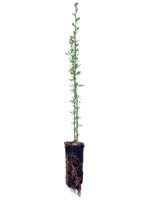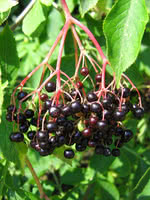Mon-Fri 9am - 5pm Mountain time
Pygmy Caragana vs Black Elderberry
Caragana pygmaea
Sambucus canadensis
CUSTOM GROW
NOT AVAILABLE THIS SEASON - MIGHT RETURN
Pygmy Caragana is a shrub that is related to Common Caragana and has a compact size that is suitable for yards with limited space. Its size is perfect for landscaping and decorative hedges, and requires little maintenance. This nitrogen fixer has fine-textured foliage and small yellow flowers. Much like Common Caragana, it is hardy and drought tolerant.
Popular as a low maintenance commercial landscaping shrub and for hedging. This species does have tiny spines that might poke you a bit. It has a nice appealing texture when mature.
Black Elderberry is a deciduous shrub native to eastern North America. You can plant this shrub in moist areas and it will help stabilize your soil. You can also use it on rural properties anywhere you'd use a lilac.
Black Elderberries are considered to be partially self-pollinating. So while they will still produce some berries without cross-pollination, planting with another variety will increase yields. Consider planting with Ranch Elderberry or Bob Gordon Elderberry.
Warning: the seeds, stems, leaves, roots, and uncooked berries of the Black Elderberry are poisonous to humans when eaten in quantity. You should cook the berries to make them safe for human consumption.
Pygmy Caragana Quick Facts
Black Elderberry Quick Facts
Toxicity: leaves, stems, and uncooked berries are poisonous to humans

